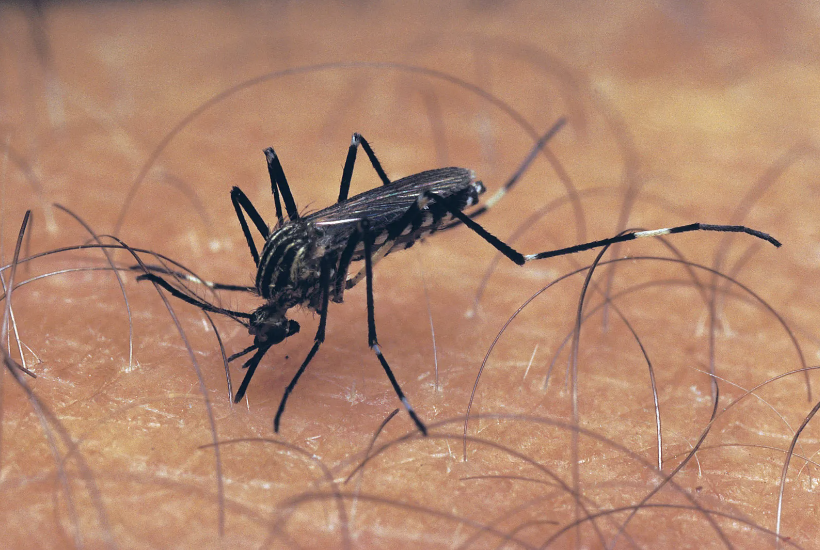In recent times, there has been a noticeable increase in the prevalence and severity of mosquito-borne viruses. These pesky, blood-sucking insects have become more than just a nuisance; they are now serious vectors of disease, affecting millions of people globally. To understand this startling rise, we turn to experts in the field of virology and public health.
The Increase in Cases
It is no mere act of coincidence that reports of mosquito-borne diseases are on the rise. According to a leading clinical virologist, Dr. Emilia Montgomery, there are several compelling reasons for this alarming trend:
- Climate Change: Rising global temperatures and unpredictable weather patterns are creating more hospitable environments for mosquitoes to breed and thrive.
- Urbanization: Increased urbanization and population growth lead to crowded living conditions, which provide ideal breeding grounds for mosquitoes.
- Global Travel: As international travel becomes more accessible, the geographic spread of mosquito-borne viruses extends into previously unaffected regions.
The Severity of Infections
The danger goes beyond the mere increase in cases; the infections themselves are becoming more severe. This, experts argue, is due to several factors:
- Virus Evolution: Mosquito-borne viruses are evolving, making them more virulent and adaptable to a wider range of hosts.
- Human Immunity: Population immunity is declining in some areas, making individuals more susceptible to severe infections.
- Healthcare Challenges: Limited healthcare infrastructure in affected regions can exacerbate the severity of these diseases.
A Global Concern
Mosquito-borne viruses are more than a localized issue. They have captured the attention of the global health community. The World Health Organization (WHO) and Centers for Disease Control and Prevention (CDC) have been actively monitoring and researching these diseases. Collaborative efforts are underway to mitigate their spread and impact.
Specific Viruses of Concern
Several mosquito-borne viruses have garnered the most attention due to their severe impacts on human health:
- Dengue: This painful, debilitating virus has seen a dramatic rise, with millions of cases reported annually.
- Chikungunya: Known for causing severe joint pain, Chikungunya outbreaks have become more frequent and widespread.
- Zika: Although symptoms are often mild, Zika can lead to severe birth defects when pregnant women are infected.
- West Nile Virus: This virus is notorious for causing neurological complications and is spreading into new regions.
Preventive Measures
What can be done to combat these rising threats? Experts emphasize that a combination of personal preventive measures and community-level interventions is essential.
Personal Protective Measures
- Use of Insect Repellents: Applying repellents containing DEET, picaridin, or oil of lemon eucalyptus can effectively deter mosquitoes.
- Wearing Protective Clothing: Long sleeves and pants can help minimize skin exposure to mosquito bites.
- Utilizing Mosquito Nets: Sleeping under mosquito nets can provide a vital barrier, especially in high-risk areas.

Community and Environmental Measures
- Eliminating Standing Water: Removing stagnant water sources can drastically reduce mosquito breeding sites.
- Community Education: Raising awareness about prevention methods can help communities adopt effective practices to reduce mosquito populations.
- Vector Control Programs: Government-led initiatives, including insecticide spraying and mosquito traps, can significantly curb mosquito infestations.
The Hope on the Horizon
Despite the formidable challenges posed by mosquito-borne viruses, hope is not lost. Scientists and public health professionals are tirelessly working on innovative solutions. Advanced research is leading to better diagnostic tools, vaccines, and even genetic modifications to mosquitoes that can reduce their ability to transmit diseases.
One particularly promising area of research is the development of vaccines for these viruses. While vaccines for Dengue and Zika are already in various stages of development and deployment, ongoing research aims to expand these protective measures to include other dangerous viruses.
In conclusion, while the rise in severe mosquito-borne viruses is a concerning trend, it is heartening to see the global response. As individuals, communities, and nations come together to combat these threats, we can look forward to a future where these diseases become less common and less severe. The collective effort and determination promise a brighter, healthier world for all.
In a world increasingly aware of its vulnerabilities, it is the power of collaboration and innovation that offers the most profound sense of optimism. Together, we can turn the tide against these tiny yet formidable foes.